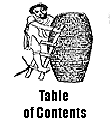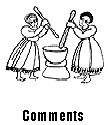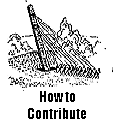
 #2: Can you tell us one indigenous and one imported truly "modern", maybe even revolutionary, idea (in terms of how it disrupted the prevailing accepted practice) that have been developed or adopted by Ethiopians over the span of our history? Berhanu Yalew Yihun One indigenous and truly modern idea is the concept of "idil," loosely translated as fate. Hey, stop smirking and hear me out, please. It is a truly elastic concept about one’s God-given potential and its earthly actualization. The life mission of the individual is to discover one’s idil through hard work (socially useful or not) which is realized in terms of wealth, prestige and the pursuit of happiness. If one succeeds in life, the achievement is rationalized as the fulfillment of one’s good idil. If, on the other hand, one fails in life, it is also equally rationalized as the fulfillment of one’s idil–albeit a bad one. This concept of fate is far more flexible than the fatalism implied in the related concept of predestination. The idea of merit and hard work is embedded in this concept. God is rarely blamed for bestowing a metfo idil on some of his children. After all, sincere pleadings (read: prayers and consultations with the debterra or qalicha) might effect a change of heart on the part of the whimsical but ever-forgiving Creator: Woy nefsen wusedat woy idilen barkew, gonne telalatte sikefagn yemakew! One imported idea that has had a profound impact on Ethiopian society is the modern notion that the State should be accountable primarily to its citizens rather than just to the autocratic ruler. This idea brought us, for a brief while, a highly efficient and meritocratic civil service and national military. It also brought us the engines of modernization such as a national educational system, tax system, communications system, etc. However, the political elite has viewed the poor citizenry as an object of pity and manipulation. In the contest between the nascent modern notions of the rule of law and the sovereignty of the citizen and the old notions of martial virtues and leadership by strongman, the latter is evidently winning the protracted contest. We still have not figured out a way for empowering lowly citizens and humiliating the overgrown government. Sadly, those aspiring to capture this profitable political machinery still think of using it both to enrich themselves and to patronizingly "save the ignorant masses from their anti-modern mindset of rural idiocy."
Dr. Fekade Azeze The phrase "ye-awropa menged" (literally meaning "the way of Europe") and the word "seletane" (meaning "civilization", "modernization" etc.) were I think, two expressions that attempted to describe "modernity, civilization, modernization" during the first three decades of 20th century Ethiopia. I believe, the theoretical explications of these and other similar phrases at the time, in newspaper articles and in books, and what happened on the ground, contradicted immensely. The writings wished to emulate what they called " the ways of Europe" or "seletane" on one hand, and there were the so-called "Japanizers" also. On the ground, what was described, as "seletane" was essentially the newly imported commodities and services. The writings were, let me boldly generalize, about "making things" and the like while the practice was, and I am afraid, it predominantly still is, "importing things". This is one permanent problem this country was, and is still, facing. To come back to your question, however, it is the phrase "ye-ferenj temhert" (meaning "European or modern education") or the word "askuwala" (meaning "school") that I think "disrupted the prevailing accepted practice" and "that [has] been developed or adopted by Ethiopians over the span of our history". There is ample evidence for this in the writings of many Ethiopians, especially in their creative works. The social attention education was and is still given in our societies is also another indicator that supports the above statement.
Ato Gaitachew Bekele
|

|

|

|

|

|
| © Copyright SELEDA Ethiopia, July/August 2002. All Rights Reserved. |
